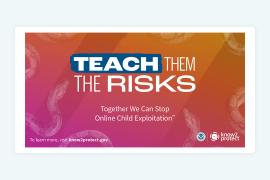Parents. I have them. I know them. I am one. And I was a day camp director who interacted with parents daily (and in the evenings, over the weekends, and, yes, even once on Christmas day). I know the central role that parents play in the daily work of camp and the lengths camp professionals must go to harness parent engagement, satisfaction, and (ideally) referrals.
Understanding what it takes to engage, satisfy, and earn referrals from parents is not easy. In 2017, I described parents as an evaluation holy grail: tricky to navigate, but critical to camp program health and sustainability. In that post I offered several suggestions for designing short and effective parent surveys, which included:
- Short is key! Include a small but meaningful incentive, such as a thank-you note or inexpensive camp swag (sticker anyone?).
- Include one or more measures from the Parent Perceptions version of the Youth Outcomes Battery to encourage your parents to reflect on what their child learned during their time at camp (and use this data for program design and improvement!)
- Engage your champions. Frontline staff, experienced campers, and even parents are your best sources of expertise on what happens at camp and what you might need to know about camp to ensure high quality camp experiences day after day. Designing and implementing a parent survey does not need to rest squarely on your shoulders, leverage the expertise you have all around you.
Now I want to talk about perhaps the trickiest dimension of camp parents to navigate, and that is parent satisfaction. A note before we start: I use the term parents throughout this blog but want to acknowledge that caregiver is a more inclusive term and should be considered any time we want to gather information from this perspective.
Raise your hand if you routinely ask parents as a part of some sort of post-session survey how satisfied they were with ________ (fill in the blank). Registration process, activities, staff, and food are all common ones.
Now, raise your hand if you’ve ever looked at the findings (let’s say: “74 percent of our parents reported they were mostly satisfied with the camp activities”) and thought Huh. What does that mean?
Not surprisingly, I see lots of hands raised here. This is to be expected because satisfaction is a difficult thing to measure and interpret. What does it mean to be satisfied? Does it mean the same thing to Person A as it does to Person B? (answer: no) Does it mean that the program was high quality? (answer: no) Does it tell you exactly how to improve your program? (answer: probably not) The only way satisfaction is useful to us is when we know what it means to be satisfied for each and every unique parent in your community.
This is not to suggest you go around and ask every parent “What does it mean for you to be satisfied with your program?”. Not only would this be an awkward ask, but it might also yield an awkward response because consumers are not always able to articulate what they are looking for and what would satisfy them. Plus, satisfaction can shift over time, so a person can find themselves satisfied or unsatisfied about something they didn’t anticipate to begin with. We have a word for unexpected satisfaction, it’s called delight (a customer service win!), and we have one for unexpected dissatisfaction: never coming to this camp again. And probably posting a bad review online.
So, what can we do to better understand parents’ expectations so we have something against which to evaluate satisfaction? Two options (of many, but trying to keep it simple here):
- Ask parents as a part of pre-camp enrollment paperwork.
- Determine broad categories that your parents might fit into based on certain characteristics — this is called market segmentation.
You can do this through well-designed research with your community by asking current and prospective parents questions about how they gather information, purchasing habits, values, and demographics (age, income, level of education). Benefits to doing this research yourself would be insight into your specific community and their unique needs and expectations for their child’s camp experience. Drawbacks: time consuming, difficult to do well, and perhaps information parents will not feel comfortable disclosing.
Another option is to rely on information we are gathering from parents as a part of ACA’s 5-Year Impact Study. In this study, we are tracking a cohort of campers and their parents and caregivers for three years, during summer and during the school year. We are exploring the different ways families think about camp, prioritize camp, and plan for camp. Some of what we are learning so far is that the parents in our study fall into four general categories:
- Camp is the most important thing! Parents believe in the developmental value of camp and prioritize camp over other summer activities. Parents or caregivers in this category have typically been a camper or camp staff member in the past.
- Camp is great, but so are sports and vacations and summer school. Parents who value camp and value other developmental experiences, such as family vacation, sports, music, or summer academic programs. Camp is great, but
- Camp sounds fun, let’s try that! Parents in this group are often piecing together a summer schedule that fits their childcare needs and makes for a fun summer for their child. They do not necessarily prioritize camp over other experiences---it’s more about logistics and whether or not their kid has fun.
- Camp? Yeah right. For families in this category, camp is either not a possibility (cost, location, accessibility, cultural relevance), or there are just too many barriers to make it seem worthwhile.
Parents and caregivers in your community might fall into similar categories, or additional categories, or different categories all together. Whatever the characteristics of the families you serve, understanding your segments is a powerful step towards anticipating their needs and, ultimately, earning their satisfaction. From there, you can brainstorm how you might customize your parent survey for each of your segments. Let’s play with that idea:
In our next post we will explore specific questions you can ask up front, like in your enrollment materials, to get a better sense of the parents and caregivers you service, and questions you might ask them during an end-of-session parent survey that are tailored to their unique needs.
Until then, happy evaluating!
Laurie Browne, PhD, is the director of research at ACA. She specializes in ACA's Youth Outcomes Battery and supporting camps in their research and evaluation efforts. Prior to joining ACA, Laurie was an assistant professor in the Department of Recreation, Hospitality, and Parks Management at California State University-Chico. Laurie received her Ph.D. from the University of Utah, where she studied youth development and research methods.
Thanks to our research partner, Redwoods.
Additional thanks goes to our research supporter, Chaco.
Photo courtesy of Camp Meriwether in Luthersville, GA
The views and opinions expressed by contributors are their own and do not necessarily reflect the views of the American Camp Association or ACA employees.





